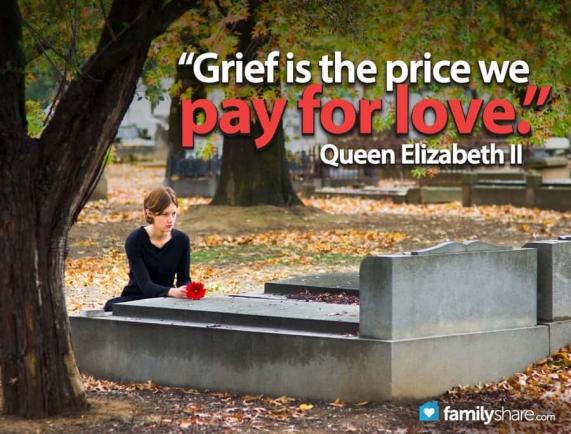
She was only 34-years-old when she died. She still had two babies, a book full of appointments for weddings she was hired to photograph. She still wanted to take her kids to Disneyland. Why did God choose to take her so soon?
Everyone kept saying the same things, and so did I. My sister-in-law Natalie was a spunky young mom before cancer took her life only two months after she got the diagnosis. To us, God took her too early - but the truth of it is, everyone feels that way. Losing a loved one to death is a mandatory part of life, but losing hope is not. By doing just a few simple things, you can deal better with one of the hardest things ever - death.
Feel everything
If you think being strong means don't cry, you're wrong. Feel your pain. Death isn't easy, and everyone experiences different waves of sadness and emotion. However it may be, let yourself feel sad. Sift through old pictures, read old e-mails, write in a journal, and cry into the shower water. If you don't let yourself let out the pain, it'll come out later, affecting your work, your social life, or your faith.
Talk about faith and spirituality with others
This will be one of the most important steps in coping with grief. It was for me. My husband and I talked about our beliefs about the afterlife; God's plan for his children, and the way in which death is an essential part of continuing the journey. We stewed over our doubts and talked about our fears. But most importantly, we reminded each other of what we already believed and the way in which life here on earth isn't the end. Death can't break the bond of family. By talking with family and friends, you'll refresh your mind to what you believe and give yourself a reminder of why you believe in it.
Let yourself laugh
Watch comedies or watch as your pets chase their tails. Laugh as your wobbly-legged baby learns how to walk. Let yourself laugh, and don't feel guilty. You don't have to wear the veil of grief over your laughter. Find joys in the simple pleasures of life again and remember that your loved one is probably laughing along with you. When you let yourself laugh you release feel-good hormones that tell your brain that your exterior world is safe and positive. Give your brain the right messages.
Say their name
This one can be the hardest but it's the most important. Keep talking about them. Don't turn down the radio when their favorite song comes on. Don't stop making cheesecake at family functions just because it was their favorite. Keep them alive - and the grief will die. As author Robert Blatchford once said, "Death is not what some people imagine. It is only like going into another room. In that other room we shall find ... the dear women and men ... we have loved and lost."�
Find comfort in the fact that your loved one is close. They still love you.
And life here, as well as beyond, is meant for your joy.

